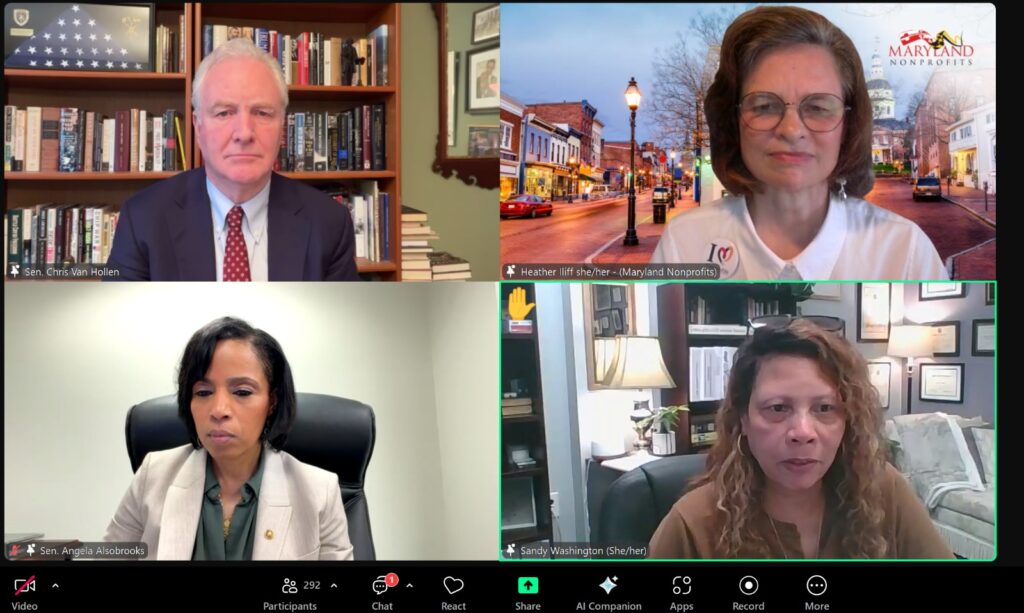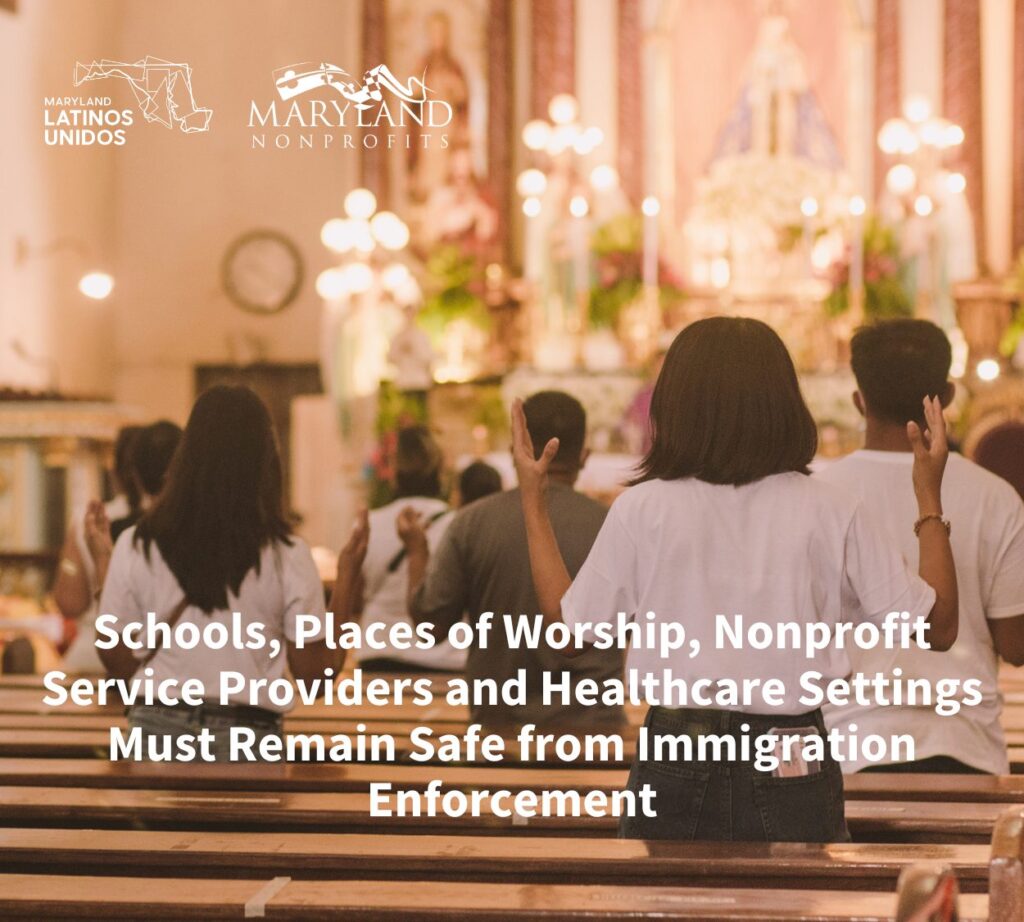Policy Hub




Maryland Nonprofits is the state’s leading advocate for nonprofit public policy.
Nonprofits in Maryland are powerful agents of change, playing a vital role in building equitable communities and shaping policies that uplift all residents. With over 40,000 organizations employing nearly 13% of the state’s private workforce, our sector significantly impacts Maryland’s economy and well-being.
Advocacy and lobbying are essential tools for nonprofits, and they are not only permitted but also critical to advancing our missions—as long as they remain nonpartisan. At Maryland Nonprofits, we work to amplify the collective voice of nonprofits, advocating for legislative solutions that address systemic issues and create lasting opportunities.
We provide resources, convenings, and support to engage in organizing, advocacy campaigns, and coalition building. By collaborating with nonprofits, policymakers, and community leaders, we aim to create a more inclusive and equitable Maryland, empowering organizations and communities alike.

Each year, our priorities and principles are shaped by feedback from nonprofits across Maryland to ensure alignment with sector needs.
Nonprofits are the backbone of Maryland’s communities, providing essential services and advocating for change. The sector also drives the state’s economy.
Stay informed and participate in our advocacy campaigns. Together, our collective voice creates meaningful change.
Join a dynamic forum where nonprofit advocates connect, learn, and collaborate on critical issues impacting the sector. Learn more by contacting help@mdnonprofit.org.

Check out the latest advocacy and public policy news and alerts.



We’re here to answer your questions about policy issues, advocacy, lobbying, or the rules that apply to nonprofits.
Yes, 501(c)(3) organizations can lobby, but it must remain an insubstantial part of their activities unless they elect the 501(h) expenditure test, which provides clearer limits on lobbying expenses. Download What Nonprofits Need to Know About Lobbying in Maryland from Bolder Advocacy for a comprehensive guide.
Lobbying includes attempting to influence legislation by contacting lawmakers or encouraging the public to do so. Both direct and grassroots lobbying activities count. Use this Lobbying Flowchart from the Alliance for Justice for guidance in determining if your activities count as lobbying.
Yes, nonprofits engaging in lobbying must register and report their activities according to federal, state, and local laws. Register with the Maryland State Ethics Commission.
See Federal Lobbying Disclosure Act Guidance provided by the Clerk of the U.S. House of Representatives for a full discussion of the federal law.
The State of Maryland’s lobbying and disclosure requirements are embodied in its Public Ethics laws and summarized by the State Ethics Commission.
No, 501(c)(3) organizations cannot support or oppose political candidates, donate to campaigns, or engage in partisan political activities, but they can conduct voter registration drives, public education, and issue advocacy as long as they remain nonpartisan. Download Staying Nonpartisan: Permissible Election Activities Checklist from NonprofitVOTE for a quick-reference resource.
It allows 501(c)(3) organizations to use specific expenditure limits to measure lobbying activity, providing more clarity than the general “insubstantial part” rule.
The National Council of Nonprofits provides a clear guide on Taking the 501(h) Election and its advantages for charitable organizations engaged in advocacy. “Worry Free Lobbying” by the Alliance for Justice also offers a detailed guide.

We are dedicated to empowering organizations to make a greater impact on the policy issues affecting their communities and missions.


